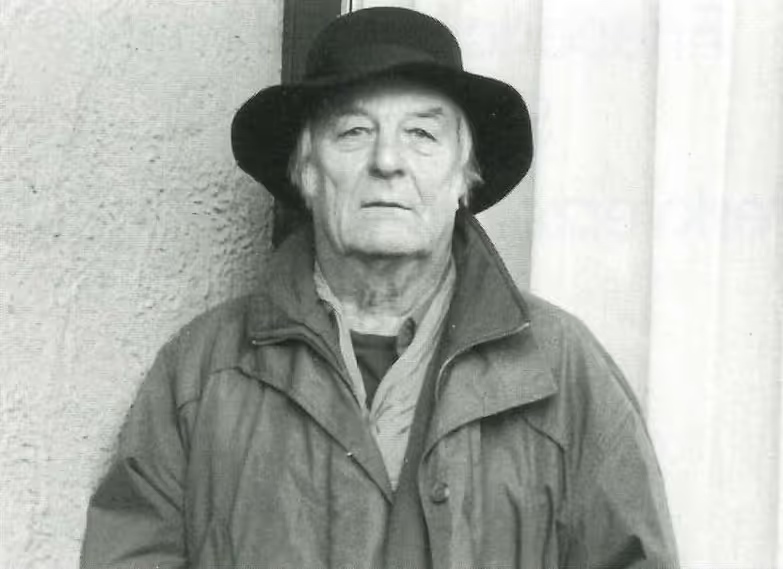Friedrich Werthmann

The German sculptor and sculptor of the Informel Friedrich Werthmann was born in 1927 in Wuppertal Barmen and began working artistically from 1948 after being a prisoner of war during the Second World War. After various journeys through southern Germany, Switzerland and Austria, he began creating sculptures in wood and stone in the 1950s, which were initially still rooted in figuration.
In the following years, Werthmann increasingly turned to abstraction and became acquainted with the artists Hans Arp, Constantin Brâncuși and Henry Moore through the gallery owner and important patron of the Rhenish avant-garde Pierre Wilhelm. Werthmann developed his own abstract style and joined the Düsseldorf "Gruppe 53" around Gerhard Hoehme and Peter Brüning in 1957. The aim of the group was to strengthen the position of contemporary abstract art in post-war Germany and to promote the expressive, gestural, spontaneous act of painting. As a result, the group became one of the most important representatives of German Art Informel. Informal art is a collective term for a style of abstract painting that emerged in Europe and the USA after the Second World War. The focus is on the detachment from all formal conditions and the radical departure from traditional pictorial composition - the spontaneous gesture becomes the actual pictorial theme. In 1959, Werthmann received the Cornelius Prize of the City of Düsseldorf as well as the first "German Art Prize for Youth". As a member of the Deutscher Künstlerbund, he took part in a total of nine Künstlerbund exhibitions between 1959 and 1966. In 1962, Werthmann accepted a teaching position at the Art Academy in Kassel and established the metal class there. He maintained a studio in Düsseldorf and, from 1968, in Ticino; from 1978 he worked increasingly in Düsseldorf again.
His works range from reliefs to welded pieces and groupings of rods and knots. In 2019, the artist's estate with sculptor's workshop and sculpture garden in Kaiserswerth is opened. Werthmann himself dies a year earlier in Kaiserswerth.







